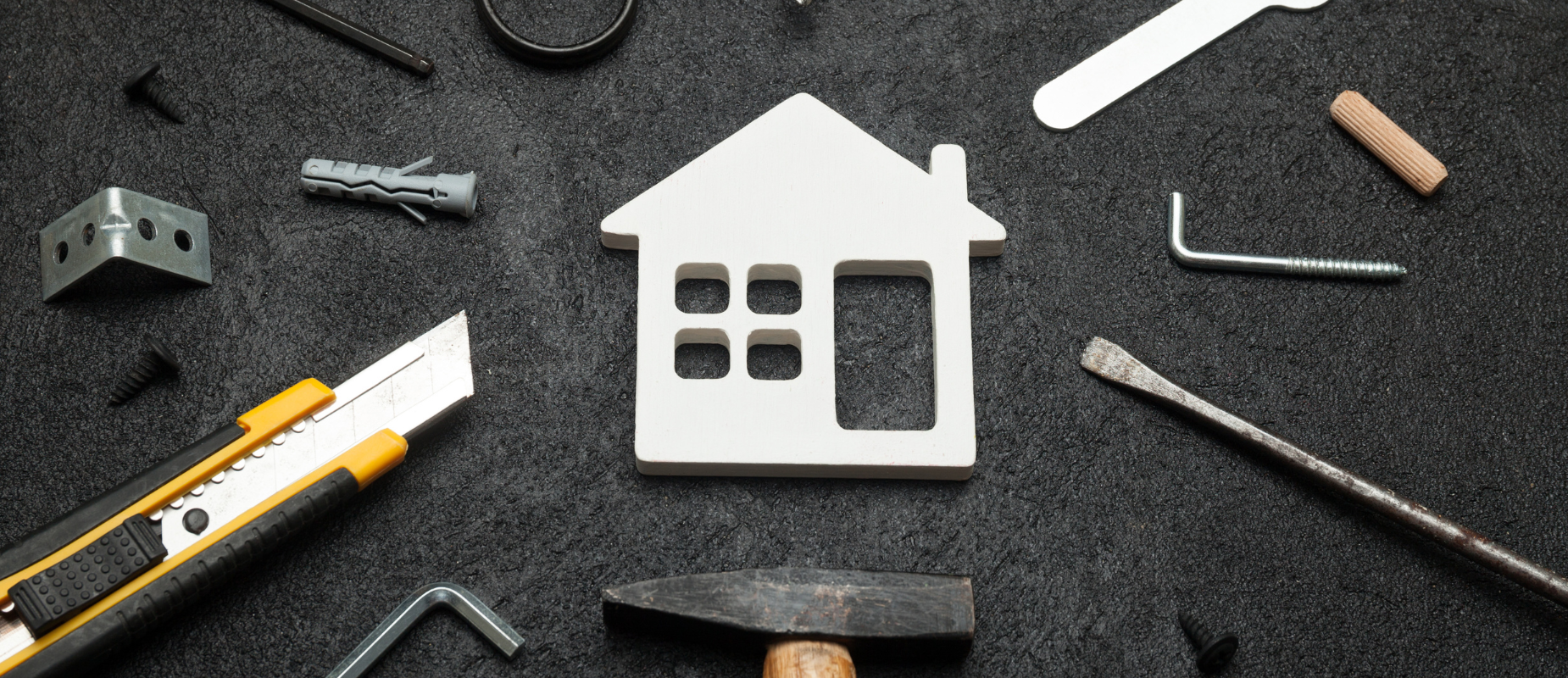
FHA Required Repairs in Texas
What Are the Common Repairs Required for FHA Loans in Texas?
When applying for an FHA loan in Texas, homes must meet certain standards to be safe and sound. These standards include mandatory FHA home repairs, which are checked during the FHA appraisal process. The FHA loan required repairs focused on the property’s condition, safety hazards, and functionality. Common issues needing attention are:
- Roofing: Roofs should have at least two years of life and be leak-free.
- Electrical Systems: Electrical panels and wiring should meet local building codes to avoid safety risks.
- Plumbing: Plumbing systems must work properly without leaks or defects.
- Heating and Cooling Systems: Homes need a working heating system, and cooling systems must work if installed.
- Water Supply and Sewage Disposal: Must be safe, functioning, and meet local health and safety standards.
The FHA appraisal checklist in Texas ensures these minimum property standards are met, protecting both the lender and the buyer.
How Do Required Repairs Impact Home Buyers and Sellers?
When people buy and sell homes, FHA loan fixes are very important. Sellers make sure the house meets federal standards, which could lower the cost of repairs in the future. This could change the market value and the terms of the deal. Buyers may try to get a cheaper price if the house needs much work.
Meeting FHA repair criteria frequently entails making repairs before listing or selling for sellers. The speed at which the house sells may suffer as a result. Dealing with a real estate expert knowledgeable about FHA loans helps to ensure that all FHA loan criteria are met without problems.
Why Are Certain Repairs Mandatory for FHA Approval?
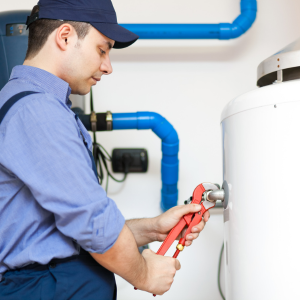
For FHA approval, certain repairs must be done to ensure homes meet safety and livability standards. The main focus is on the health and safety of occupants, especially given Texas’s varied climates. The FHA property condition requirements cover:
- Hazardous Conditions: Environmental or physical hazards must be resolved, like lead-based paint in older homes.
- Structural Integrity: Homes must be structurally sound.
- Functional Utility: Services such as heating, plumbing, and electricity must be operational.
Texas’s FHA safety standards protect lenders and homeowners by maintaining property values and minimizing risks.
Role of FHA Appraisers in Identifying Required Repairs
FHA-approved appraisers in Texas are key in the FHA appraisal process. They evaluate properties based on FHA requirements to identify needed repairs. During inspections, appraisers check safety, structural, and functional areas. Their reports list compliance issues and necessary repairs to meet FHA standards.
The appraiser’s findings help lenders decide if a property qualifies for an FHA loan. A precise appraisal is crucial for buyers and sellers to ensure that the property meets FHA guidelines and avoids financial issues.
How to Prioritize Required Repairs for Compliance?
Prioritizing FHA-required repairs is important for meeting compliance. Here’s how to proceed:
- Review the FHA Repair Checklist: Get a detailed list of repairs from the appraisal report.
- Conduct a Thorough Home Inspection: Hire a home inspector to confirm issues in the appraiser’s report.
- Consult with Your Lender: Discuss necessary repairs with the lending institution to understand their urgency.
- Plan and Budget Repairs: Focus on critical repairs for FHA compliance, prioritizing safety and structural issues.
- Hire Qualified Contractors: Use reputable contractors to complete repairs to regulation standards and pass FHA compliance inspections in Texas.
Following these steps helps homebuyers and sellers effectively manage FHA repair guidelines, ensuring the property meets all necessary requirements for FHA approval.
Repair Guidelines for FHA Compliance
What Repair Standards Must Be Met Under FHA Guidelines?
In Texas, properties must adhere to specific FHA inspection guidelines to qualify for an FHA loan. These guidelines ensure homes are safe, secure, and suitable for living. According to FHA minimum property standards, key repairs and improvements are essential. Understanding these regulations is important for those seeking FHA financing. FHA property standards in Texas require functional systems like plumbing and heating, a stable foundation, and the absence of major hazards.
FHA loan requirements also mandate that all repairs address health or safety risks. Common home repair requirements for FHA loans in Texas include fixing roofs, addressing water damage, and ensuring electrical systems meet safety standards. Borrowers and sellers should review an FHA appraisal checklist in Texas to confirm compliance before starting the appraisal process.
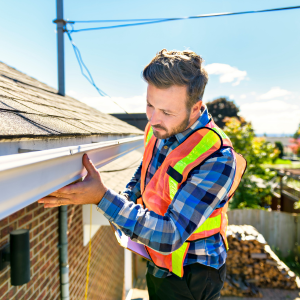
Which Safety and Health Repairs Are Typically Required by FHA?
FHA housing guidelines center occupant health and safety, and mandatory FHA home repairs include removing health risks. This covers looking for and eliminating asbestos, setting up smoke detectors as part of fire safety measures, and attending to any other possible hazards.
Lead-based paint in older homes must be addressed if Texas is to follow FHA safety guidelines. A safe place to live depends on these safety repairs. Knowing these criteria helps sellers and buyers be ready for FHA visits.
How Does FHA Determine the Necessary Repairs for Approval?
The FHA appraisal process in Texas involves a detailed evaluation by FHA-approved appraisers. They follow Texas appraisal requirements and assess aspects like structural soundness, mechanical system functionality, and overall safety.
The appraisal also includes examining FHA inspection criteria in Texas, which involves checking the inside and outside of the home. Appraisers are trained to find problems that might affect a home’s livability. Knowing FHA appraiser requirements in Texas helps sellers fix potential issues before official inspections occur.
Options for Completing Repairs Before Final FHA Appraisal
Before the final FHA appraisal, homebuyers and sellers in Texas have several options to achieve compliance. One method involves understanding FHA repair escrow requirements, where funds are reserved for necessary repairs after closing.
In Texas, FHA compliance inspections are conducted before the official appraisal can identify and resolve outstanding issues. Homebuyers and lenders often discuss responsibility for these repairs during transactions. Using an FHA repair checklist can help address all concerns quickly.
Following these guidelines helps properties meet essential FHA standards, making transactions smoother for buyers and sellers. Resources from Sell My House For Cash can provide more information on navigating FHA property guidelines when selling your home.
The Process of Handling FHA Repair Requirements
Steps to Addressing FHA Repair Mandates in Texas
In Texas, handling FHA repair mandates requires a clear understanding of the process to ensure your property meets the necessary standards. Here are the key steps:
- Appraisal and Inspection: An FHA-approved appraiser evaluates the property’s condition. During this appraisal, any required repairs to meet FHA standards are identified. It’s important to distinguish between essential repairs and optional recommendations.
- Understanding Repair Guidelines: After receiving the inspection report, carefully review the repair guidelines. These guidelines specify what must be fixed to comply with FHA standards, helping prioritize necessary repairs.
- Implementing Repairs: Hire qualified professionals to complete the needed repairs. Quality work is crucial since the property needs re-inspection to verify all issues are resolved.
- Final Compliance Check: After completing the repairs, the appraiser or a qualified inspector will re-inspect the property to ensure that all FHA requirements are met, leading to a compliance certificate.
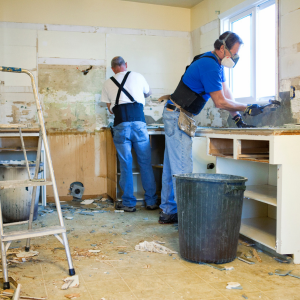
Who Bears the Cost of Required Repairs in an FHA Transaction?
In an FHA transaction, determining who pays for repairs involves negotiation between the buyer and seller. Here are common scenarios:
- Seller Responsibility: Sellers often pay for repairs that impact structural integrity or safety. This can attract potential buyers.
- Buyer Agreement: Sometimes buyers agree to handle repairs after purchase, especially if the property’s price is adjusted.
- Negotiation: Both parties can negotiate repair costs as part of the FHA loan transaction. It’s important to agree before signing contracts, with terms specified in the sale agreement.
Can Repairs Affect the Timeline for Closing an FHA Loan?
Repairs can impact the timeline for closing an FHA loan in several ways:
- Potential Delays: Extensive repairs might delay the closing process, as lenders require all work to be completed before approval.
- Scheduling Repairs: Efficiently planning repair schedules and coordinating with contractors can minimize delays. Allow extra time for unexpected issues or re-inspections.
- Communication with Lender: Keeping in touch with your lender helps ensure all parties know progress, preventing unnecessary setbacks in the FHA loan approval timeline.
How to Negotiate Repairs with Buyers and Sellers Effectively
Effective negotiation is key when dealing with repairs in real estate transactions. Here’s how to do it:
- Clarity and Documentation: Document the needed repairs from the inspection report. Use this documentation as a basis for negotiations with buyers and sellers.
- Involvement of Real Estate Experts: Leverage the expertise of real estate experts to facilitate negotiations. Their experience can help achieve mutually beneficial agreements.
- Flexible Terms: Be open to flexible terms. For instance, sellers might reduce the selling price instead of making repairs, allowing buyers to address the issues later.
- Settlement Agreements: Ensure all agreed repairs and terms are documented in the settlement agreement to avoid future disputes. Transparency helps maintain trust and enables smooth transactions.
By understanding these processes and managing negotiations effectively, buyers and sellers can successfully handle FHA repair requirements, leading to smooth property transactions.
Strategies for Managing FHA Repair Challenges
Tips for Ensuring All FHA Repair Requirements Are Fulfilled
When handling real estate transactions with FHA loans, knowing the FHA appraisal requirements in Texas is important. The FHA repair checklist helps address safety concerns and meet property standards effectively:
- Understand FHA Appraisal Requirements: Learn what appraisers check during FHA inspections, like structural integrity and safety issues.
- Conduct Pre-inspection Repairs: Handle preliminary repairs before the FHA inspection. According to the FHA repair checklist, focus on safety and structure.
- Work Closely with Your Lender: Keep your lender informed about major repairs. Their guidance can simplify the FHA inspection process.
- Address Safety Concerns Promptly: Fix safety-related problems quickly, such as faulty wiring or plumbing.
- Stay Informed About Local Rules: Be aware of specific FHA inspection rules in Texas and any local nuances in the appraisal process.
What Happens If a Property Fails to Meet FHA Repair Standards?
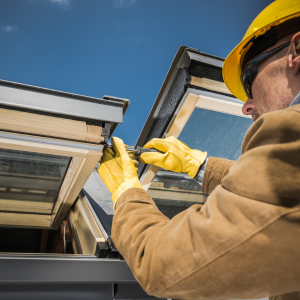
If a property fails to meet FHA housing standards in Texas, mandatory home repairs are required for loan approval. Here’s what to expect if standards aren’t met:
- Detailed Appraisal Report: A failed appraisal includes a report listing areas needing repair to meet minimum property standards.
- Negotiation with All Parties: Buyers, sellers, lenders, and realtors must negotiate repairs. They decide who pays for and how repairs will be made.
- FHA Compliance Inspections in Texas: After repairs, another FHA loan inspection in Texas ensures compliance.
- Risk of Loan Denial: If necessary repairs aren’t done, the FHA loan application might be denied, pushing buyers to find other financing.
Alternatives for Homes That Cannot Meet Required FHA Repairs
When homes can’t meet FHA repair requirements, consider these alternatives:
- FHA Repair Escrow Requirements: Some lenders offer a repair escrow option, allowing repair funds to be set aside post-closing.
- Explore Cash Offers: In some markets, selling to investors for cash is an option, especially if extensive repairs are needed.
- Consider Negotiation Tactics: Discuss negotiating repair responsibilities or price adjustments with your agent.
- Appraisal Waivers: Appraisal waivers might be possible in rare cases, depending on market conditions and lender policies.
Effective Communication with Lenders Regarding Repairs
Communicating well with lenders is key to handling FHA requirements smoothly:
- Maintain Regular Dialogue: Stay in touch with your lender to avoid misunderstandings about the appraisal process and mortgage impacts.
- Clarify FHA Property Guidelines in Texas: Ensure both parties understand the specific property appraisal requirements.
- Discuss Repair Options Early: Talk about potential repairs during early conversations to prevent surprises later.
- Documentation and Transparency: Provide detailed documentation of completed repairs, including receipts and warranties, to avoid delays in compliance checks.
By following these strategies, you can manage FHA repair challenges efficiently, leading to smoother property transactions.
Importance of FHA Repair Requirements for Real Estate Transactions
The Federal Housing Administration (FHA) is important in real estate deals. It helps keep property values stable and ensures mandatory repairs are made. Knowing FHA requirements is key for anyone in the real estate market, especially in places like Texas, where FHA loans are common. These requirements protect a property’s market value and affect the appraisal process and transactions.
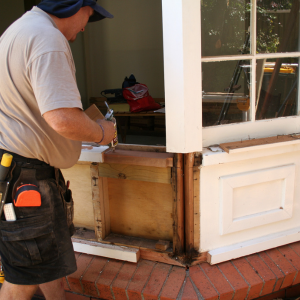
How Do FHA Repair Requirements Influence Property Values?
FHA repair requirements directly affect property values and the home’s market value. A detailed checklist is used to find needed home repairs during the FHA appraisal process. These repairs must be completed before an FHA loan can be approved. By following these guidelines, homeowners and real estate experts ensure properties meet safety standards, preserving or boosting their market value.
Long-Term Benefits of Complying with FHA Repair Standards
To get many long-term benefits, follow FHA repair guidelines. Following strict safety rules is important in any real estate deal, and meeting FHA requirements ensures such rules are followed. People who live in the house will be healthier and safer, and potential buyers will be more interested in buying it. All parties gain from following the rules because they make transactions go more smoothly and help keep the property’s value over time.
How Are FHA Loan Products Affected by Repair Regulations?
Repair rules have a big effect on FHA loan products. Lenders must follow strict FHA rules, which include fixes that must be made before the loan can be approved. These rules change the mortgage process because the borrower has to pay for any fixes found during the appraisal. Both buyers and sellers need to know about these lender standards so the lending process doesn’t get held up or denied.
What Role Do Realtors Play in Managing FHA Repairs?
Real estate brokers are very important when it comes to FHA repairs. They help buyers and sellers work out the deal’s details so that all the fixes that were called for in the appraisal are made. Agents help clients understand FHA’s strict rules and help them with the closing process and any deals on repairs. Agents help clients make these fixes, which increases the chances of a successful real estate deal, which is good for everyone.
Resources To Help You Sell A Property In Texas

